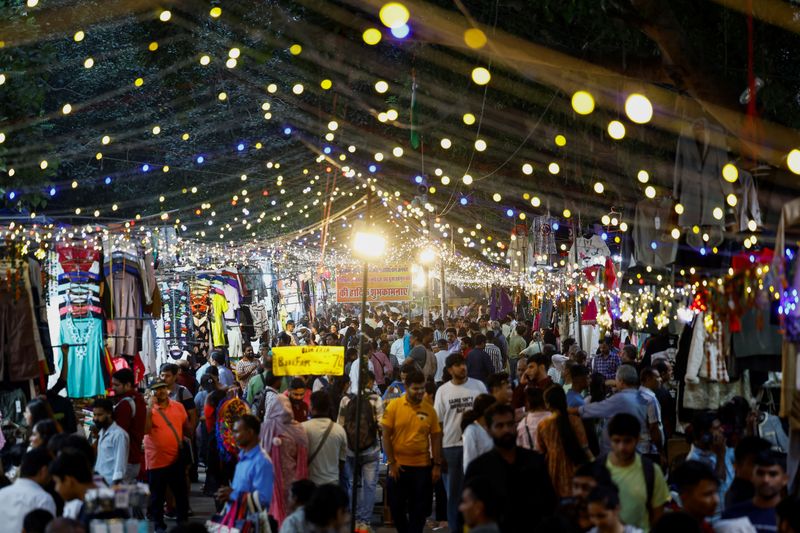By Manoj Kumar
NEW DELHI (Reuters) - Indian household spending on non-food items such as transport, garments and entertainment rose in both rural and urban areas in 2023/24 while outlays on staples like wheat and rice dropped, a government report showed on Friday.
The Household Consumption Expenditure Survey for 2023/24, conducted from August 2023 to July 2024, showed non-food items accounted for about 53% of per capita spending in rural areas, up from about 47% in 2011/12, and 60% in urban areas, up from about 57%.
The shift in spending patterns is expected to lead to a decrease in the weighting of food items in the consumer price index (CPI), which is used by the central bank to frame monetary policy.
Officials from the Ministry of Statistics and Programme Implementation have previously indicated plans to revise the base year for the retail inflation data from 2012 to 2024, incorporating these findings.
Analysts said food is likely to have a smaller weighting in India's consumer price index in the near future.
The urban-rural monthly per capita consumer spending gap narrowed to 70% in 2023/24 from 84% in 2011/12, the report noted.
In nominal terms, rural consumer spending climbed 9.55% year on year to 4,122 rupees ($48.23) per month in the year through July from 3,773 rupees the previous year, while urban spending rose 8.31% to 6,996 rupees from 6,459 rupees, the report showed.
Adjusted for inflation, rural spending grew just 3.5%, while urban spending remained subdued due to retail inflation of about 5.5% in the fiscal year that ended in March.
Compared with 2011/12, rural consumer spending rose 45.4%, outpacing the 38.1% increase in urban areas, reflecting a slight convergence in consumption patterns.

Consumer spending, which accounts for about 58% of India’s economic activity, remains a critical driver of economic growth in Asia's third-largest economy.
($1 = 85.4710 Indian rupees)